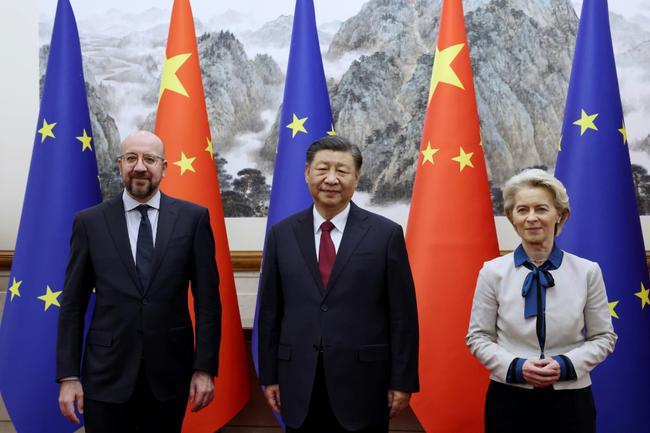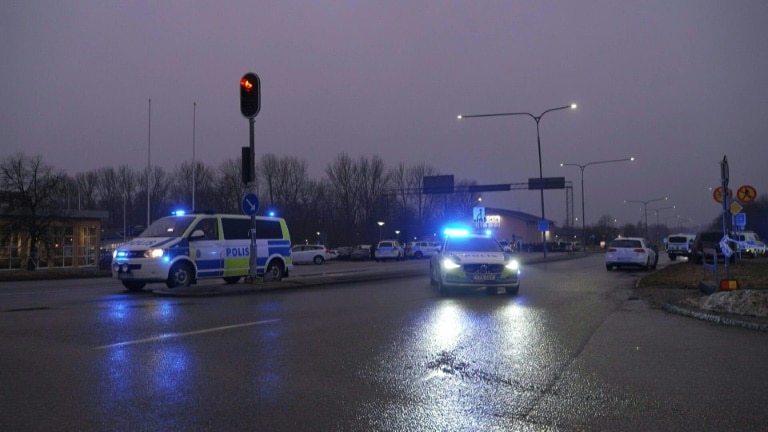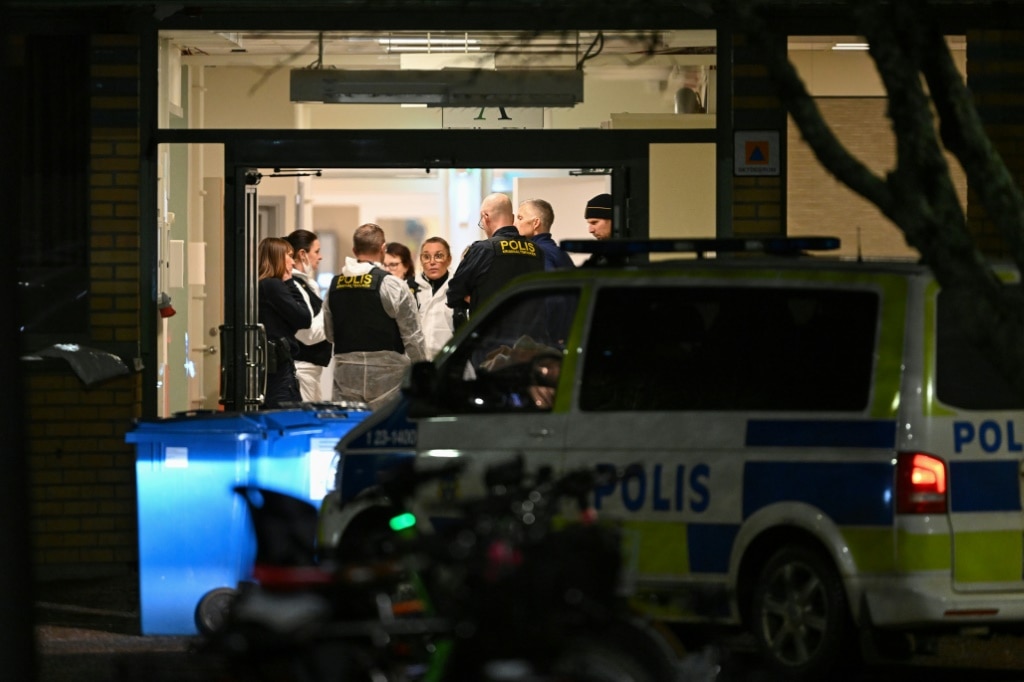EU presses China on trade, concerns over Taiwan and Russia at summit
EU presses China on trade, concerns over Taiwan and Russia at summit

EU leaders said Thursday they had pressed China's leadership on a yawning trade imbalance as well as expressed concern over Beijing's pressure on Taiwan and support for isolated Russia, at their first in-person summit in over four years.
Underlining Beijing's challenges in getting Europe onside, news broke on the eve of the summit that Italy -- the bloc's third-largest economy -- had withdrawn from its vast Belt and Road Infrastructure initiative.
And following a packed day of talks with Chinese leaders, EU President Ursula von der Leyen and European Council President Charles Michel told journalists they had held in-depth and constructive meetings with their local counterparts.
Von der Leyen said she had managed to secure agreement from President Xi Jinping on the need for a narrowing of the trade gap between the bloc and its largest economic partner.
"I'm glad that we agreed with President Xi that trade should be balanced between the two of us," she said.
"We have a complex relationship with China, which deserves frank and open discussions to deepen mutual understanding and this took place today," she said.
Michel, in turn, said the two powers had a "shared interest" in a "stable and constructive relationship".
But, he said, the European Union was "concerned" about growing tensions around self-ruled Taiwan, which China has vowed to seize one day, and the disputed South China Sea, where Beijing is engaging in a military build up.
"We are opposed to any... attempt to change the status quo," Michel said.
"I trust that China is fully aware of the serious consequences of any escalation in this region."
- 'Condemn the war' -
The EU said in the run-up to Thursday's meeting that they were keen to work with Beijing on areas in which they agreed.
And they said Thursday they had discussed areas where the bloc could work with Beijing, most notably on artificial intelligence and climate change.
Von der Leyen told journalists that China was "outstanding" in deploying renewable energy and commended Beijing's support for global efforts to cut polluting emissions.
She also said that she had raised with Chinese counterparts that the bloc was "very worried about the increased deployment of coal power plants in China".
Other touchy subjects were prominent too.
Michel said the EU was hoping to push China to do more to press Russia to end its war in Ukraine, which Beijing has not condemned.
"We would like China to be more assertive," he said, urging Beijing "to be very clear they support the UN Charter and condemn this war caused by Russia against Ukraine."
"We have been clear since the beginning of the war that how China will position itself vis-a-vis the Russian aggression toward Ukraine... will define also our relationship," von der Leyen said.
- Deep mistrust -
But speaking to journalists on Thursday evening following the summit, a Chinese foreign ministry official insisted that, despite the bloc's calls, Beijing would not be able to sway Moscow.
Russia "is a very independent sovereign nation", Wang Lutong, director general of the Chinese foreign ministry's European department, told a press briefing.
"President Putin is making his decision based on his own national interest and security," he said.
He also said he believed that Beijing "could not be held accountable" for the imbalance in trade.
"We are very keen to importing more [products] from Europe, particularly high advanced technologies and high valued products," Wang said.
China welcomed Russian President Vladimir Putin to Beijing in October, with Xi hailing their "deep friendship".
Such camaraderie was not on show in Thursday's talks with EU leaders, who Nicholas Bequelin, a senior fellow at Yale's Paul Tsai China Center, said had "zero trust" in Beijing.
Highlighting that growing mistrust was Italy's decision to withdraw from the BRI, a central pillar of Xi's bid to expand China's clout overseas.
Speaking to journalists on Thursday, Italian Prime Minister Giorgia Meloni said Rome’s participation in the project had simply not yielded the benefits they had hoped for.
"We can and must maintain relations, indeed improve commercial and economic cooperation with China, but the Belt and Road instrument from our point of view has not given the results that were expected," she said.
bur-oho/sn


